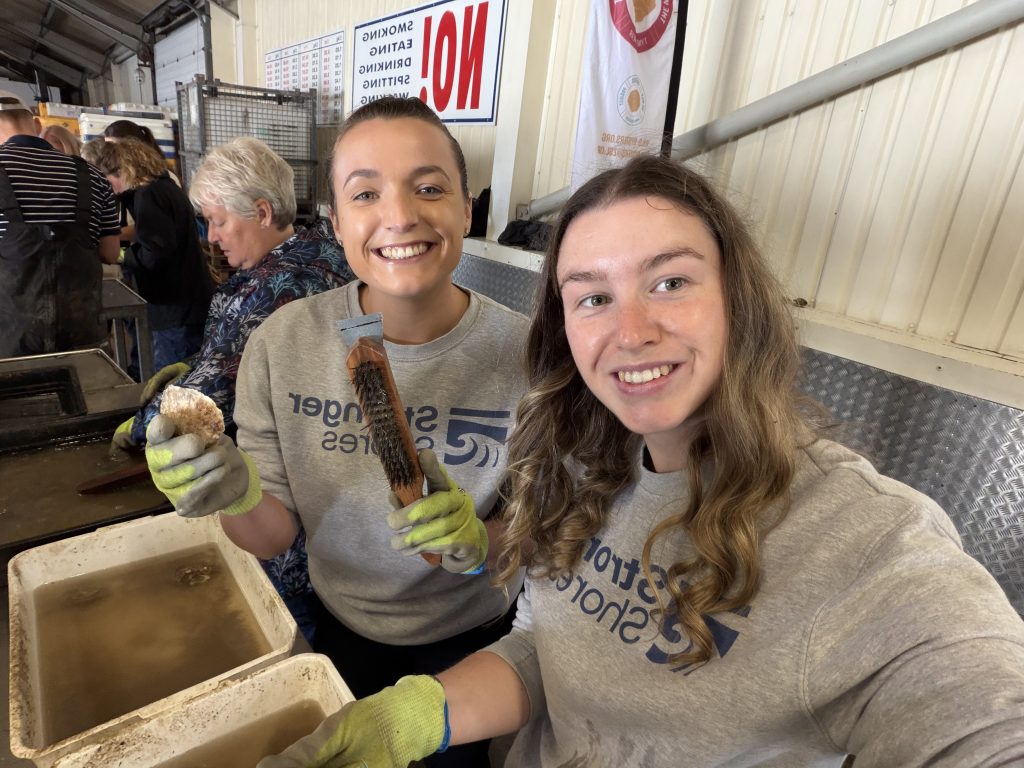Oysters to the Rescue: Innovative Reef Cubes Installed Off South Tyneside Coast
Native Oysters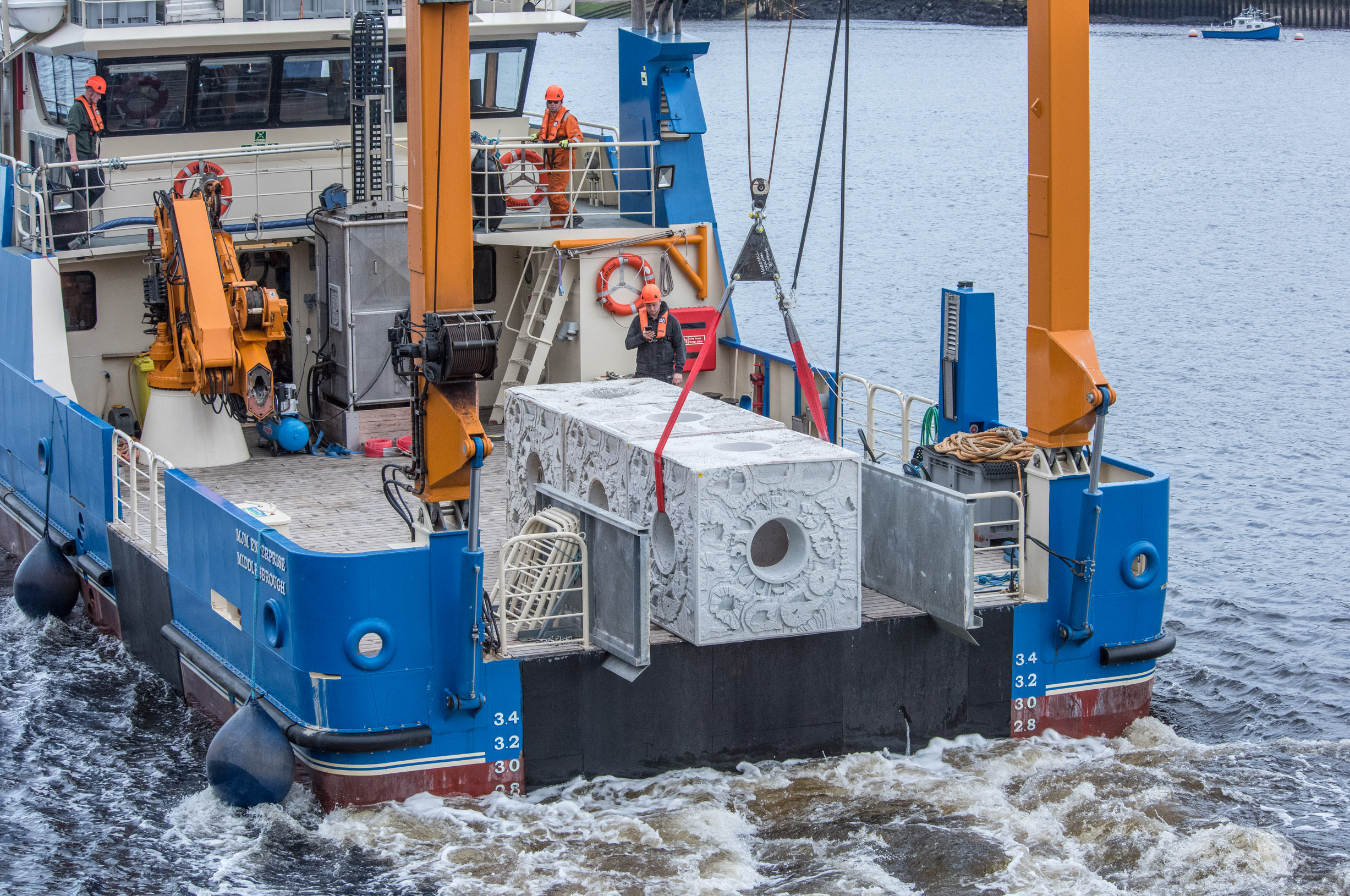
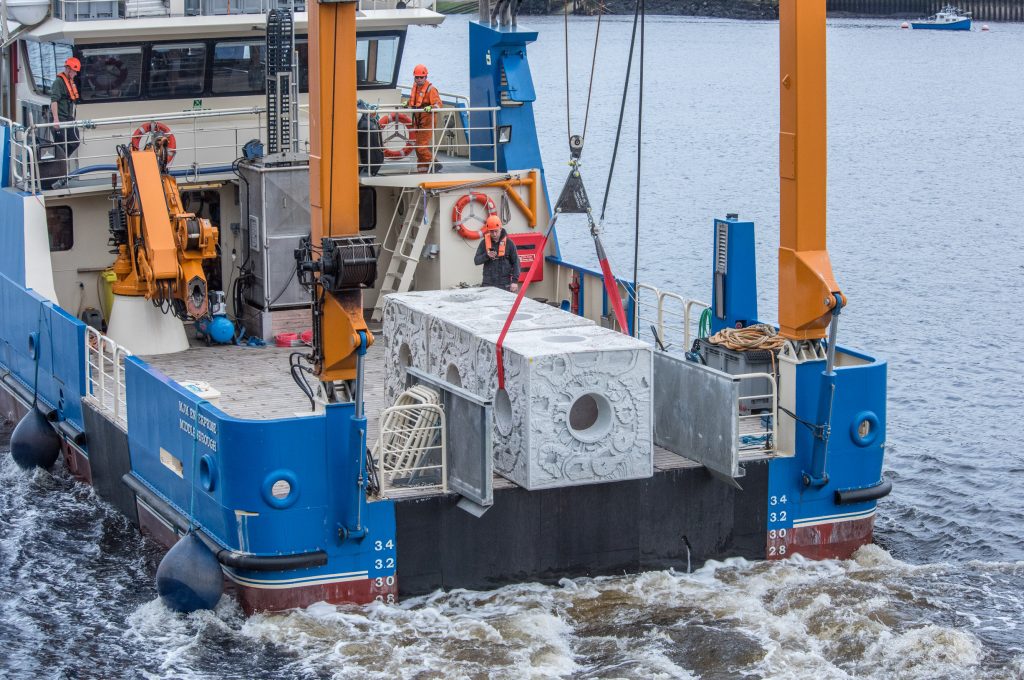
Stronger Shores are excited to share news of the successful deployment of 20 specialised artificial oyster reef cubes off the coast of Souter Point in South Tyneside. This innovation is the first of its kind in the UK and the concrete cubes act as a home for 4,000 freshly scrubbed European native oysters. These cubes act as an important milestone in the work of the Wild Oysters Project work to restore self-sustaining populations of native oysters locally in the North East, and a large part of our Stronger Shores legacy.
Stronger Shores is a project working to make British coastlines and communities stronger in the face of flooding, coastal erosion and climate change. We are funded by Defra as part of the £200 million Flood and Coastal Innovation Programmes which is managed by the Environment Agency.
Through partnership, we have been able to set wheels in motion to drive innovation in flood and coastal resilience in the face of a changing climate. With the Wild Oysters Project: Tyne and Wear, a partnership led by Zoological Society London and Groundwork North East and Cumbria, Stronger Shores have funded the deployment of 20 artificial reef structures, home to over 4,000 native oysters. These specially designed cubes hope to help restore oyster reefs to their former glory in the North East, allowing our communities to access the incredible benefits that oysters can provide.
How can oysters help with coastal resilience?
Native oyster populations have declined by around 95% across the UK since the 1800s. A single native oyster can filter around 200 litres of water per day – a full oyster reef can not only improve water quality, but provide homes for many other species of marine life.
Through partnership work, we hope that the work Wild Oyster Project are carrying out can work as part of our Stronger Shores vision to contribute to a resilient marine environment that carries benefits for people, place, and provide options for nature-based solutions to help with the climate crisis. We are doing this through innovative research, learning, monitoring and small-scale restoration. Oyster restoration can help us build the knowledge we fundamentally need to ensure our communities, species and habitats can thrive in future.
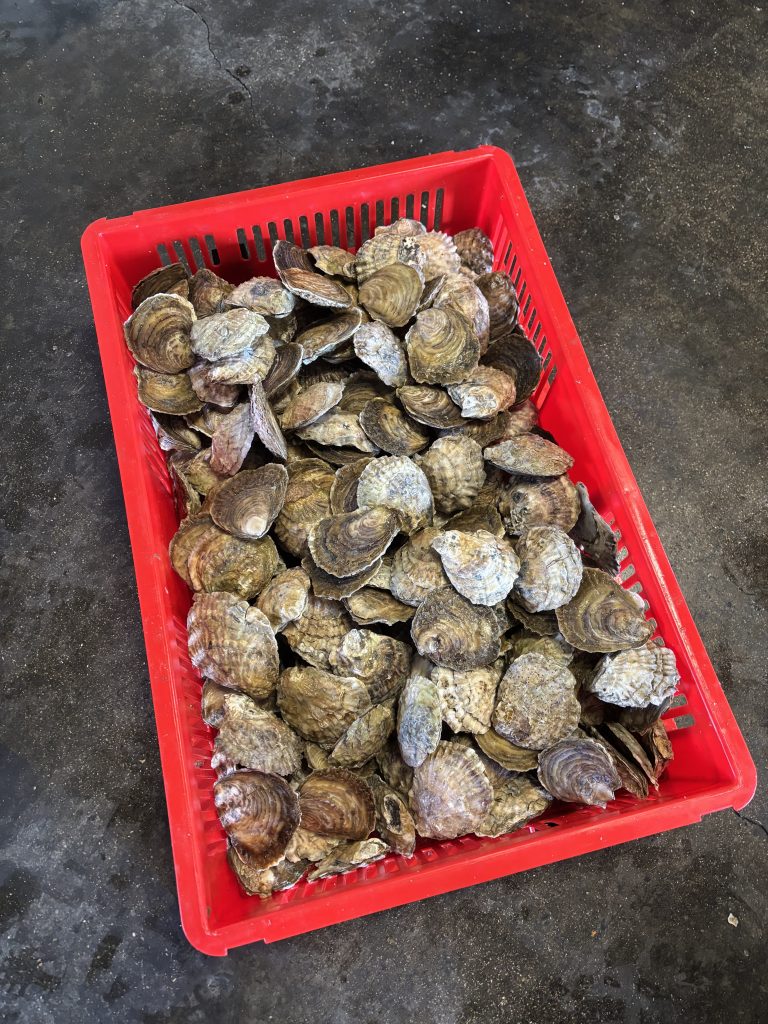
Making a home for 4,000 oysters
Preparing oysters for deployment was a collaborative effort, aided by over 100 eager volunteers (including some of our Stronger Shores team). To ensure the oysters were clean, and not carrying other species with them on their journey to the North Sea – they were scrubbed and cleaned, then attached to the specially designed reef cubes by volunteers.
To further support the restoration of oyster reef, the Wild Oysters Project team also deployed over 35,000 juvenile oysters, or spat, attached to shells, along with 40 tonnes of re-purposed scallop shells that will form the bed of a growing oyster reef, also known as cultch.
A survey vessel was then used to transport and lower the artificial reef structures, spat, and cultch onto the seabed, to a site 1.8km off the coast selected by the Wild Oysters Project team following consultation and engagement with local stakeholders and fishers.
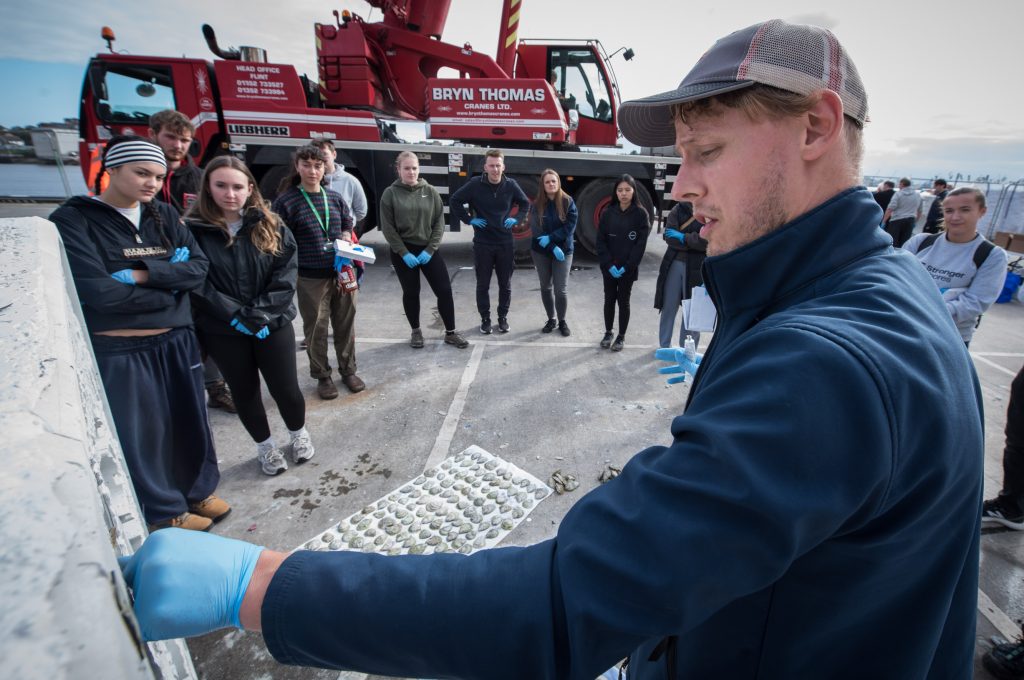
Helping nature to thrive
In 2023, 10,000 oysters were deployed off the coast of Whitburn in South Tyneside by the Wild Oysters Project as part of their earlier project phase. In this second phase, artificial reef structures were selected to address some of the lessons learnt from the previous deployment including weather issues which caused these oysters to move around. This fresh awareness of the challenges faced when deploying a reef in the turbulent conditions of the North Sea, the cubes aim to give the oysters a better chance of thriving and becoming self-sufficient.]
As with all innovation projects – adaptation is key and crucial in finding the most likely conditions for success.
